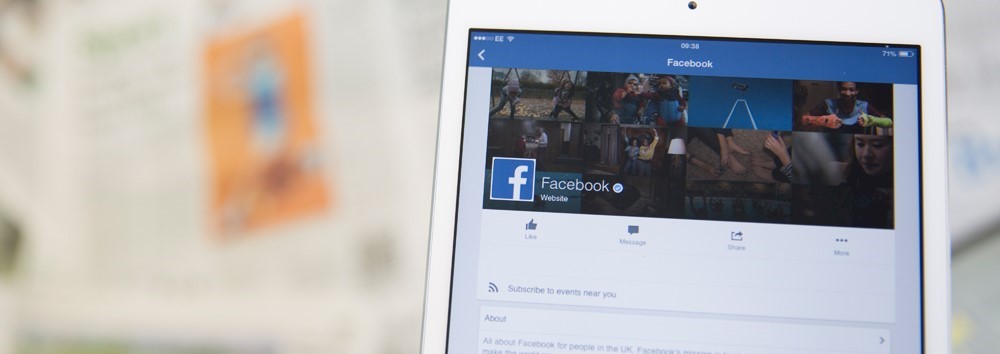Keeping up with Facebook
The decline in Facebook post and page reach has been a key talking point in marketing circles, with some businesses starting to question the value of their activity on the social network.
In 2015, Facebook has continued its charge towards ‘greater relevancy’ by introducing a further series of algorithm tweaks. Marketers are understandably wary, however are the updates really all bad news?
January
No to promotional Posts - In 2014, a Facebook poll revealed that users felt Pages focus too heavily on promotions. In reaction to this, Facebook promised that from January 2015, Pages deemed to be overtly promotional would “see a significant decrease in distribution” for their updates.
The ‘Misinformation’ Tweak - In January Facebook introduced a new way for users to flag content in their newsfeed. The change meant that users could report anything they found misleading from the simply playful to the serious. The aim was to reduce the quantity of misinformation in the newsfeed and deter page owners from posting such content with the threat of reduced organic reach.
February
New Reach Emerges - A study conducted by Locowise showed the average organic reach for Facebook pages to be approximately 7%. This figure was much higher than other surveys, which had placed reach at around 1% or 2%. Interestingly, the study did reveal that average reach did seem to vary according to the number of total page likes with figures dropping once 10,000 and 100, 000 likes had been passed.
March
Action on Inactive Likes – In March, Facebook announced that they would be deleting Page likes from users with inactive accounts in an effort to make audience data as relevant as possible. In this case, ‘inactive’ referred to accounts that had been voluntarily deactivated or memorialized rather than accounts with low recent use. Unsurprisingly, many Facebook Page admins observed a significant decrease in Page likes in March. However, Facebook maintained that the change was a positive one, giving page owners a more accurate picture of their current audience.
April
On April 21, Facebook announced a series of changes to the way it prioritised content in the News Feed. The first change sounded positive for page owners;
the algorithm rule that previously prevented the News Feed from displaying multiple updates in a row from a single source was to be relaxed.
The second change, however, was not such good news for businesses. Facebook would begin to place a higher priority on content posted by a user’s friends, and a lower priority on that posted by pages.
The Third amendment was to change the way users see interactions between their friends and pages. If a user’s friend was to interact with an update posted by a page, but the user was not a fan of the page, the activity would appear significantly lower in the News Feed, if at all.
The Fallout
The key fallout of Facebook's recent changes seems to be the decrease in a page’s visibility to those users who are not already fans. This is not all negative, after all the small percentage of fans who do see a page’s posts will be the ones who are most likely to engage with them. Nevertheless, there is an obvious downside. Unless page owners use paid advertising to increase their fan base or boost their posts, they are likely to see their message reaching a dwindling audience. As expanding your reach will require a bigger and more active fan base in future, sadly this change could affect smaller pages far more than larger ones.
So how can brands best respond to these changes?
First, create exceptional content. Think about your audience and what they will truly find engaging and valuable. If you create content that is genuinely informs, entertains or captures the interest of your audience, you will be on your way to boosting engagement and visibility on Facebook.
Second, always be clear. Any copy accompanying a link should describe exactly what users should expect on the landing page.
Third, make sure that you’re posts are not overly promotional. Think, not what your users can do for you but what you can do for your users! This way, even if your fans are not always seeing your updates, they are more likely to check in to your page every once in a while.
Next, don't rule out paid advertising. Unfortunately, it's no longer realistic to think of Facebook as a free advertising platform. With its huge reach and extensive targeting capabilities, Facebook Advertising can get your message in front of a defined audience boosting reach and engagement and attracting new fans.
Lastly, focus on building a core group of supporters rather than a large number of fans. Fans who are not engaging with your page do not benefit your marketing goals or your page’s performance, and they may even hurt your page's visibility.
For more information on CAM’s specialist digital unit awards including social media monitoring, visit our qualifications page or contact us for further details.

